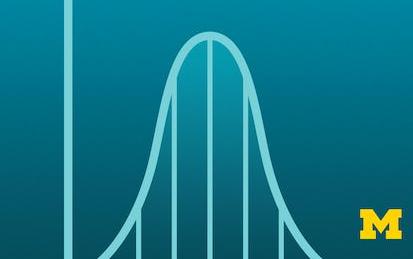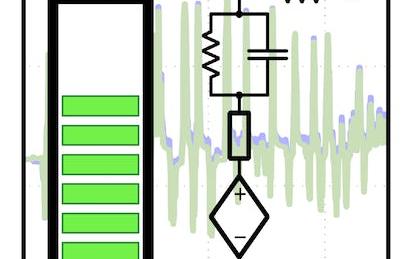

Our Courses

Introduction to Self-Driving Cars
Welcome to Introduction to Self-Driving Cars, the first course in University of Toronto’s Self-Driving Cars Specialization. This course will introduce you to the terminology, design considerations and safety assessment of self-driving cars.
-
Course by

-
 Self Paced
Self Paced
-
 35 hours
35 hours
-
 English
English

Basic Data Descriptors, Statistical Distributions, and Application to Business Decisions
The ability to understand and apply Business Statistics is becoming increasingly important in the industry. A good understanding of Business Statistics is a requirement to make correct and relevant interpretations of data. Lack of knowledge could lead to erroneous decisions which could potentially have negative consequences for a firm. This course is designed to introduce you to Business Statistics. We begin with the notion of descriptive statistics, which is summarizing data using a few numbers.
-
Course by

-
 Self Paced
Self Paced
-
 21 hours
21 hours
-
 English
English

Combinatorics and Probability
Counting is one of the basic mathematically related tasks we encounter on a day to day basis. The main question here is the following. If we need to count something, can we do anything better than just counting all objects one by one? Do we need to create a list of all phone numbers to ensure that there are enough phone numbers for everyone? Is there a way to tell that our algorithm will run in a reasonable time before implementing and actually running it?
-
Course by

-
 Self Paced
Self Paced
-
 24 hours
24 hours
-
 English
English

Introduction to Probability and Data with R
This course introduces you to sampling and exploring data, as well as basic probability theory and Bayes' rule. You will examine various types of sampling methods, and discuss how such methods can impact the scope of inference. A variety of exploratory data analysis techniques will be covered, including numeric summary statistics and basic data visualization. You will be guided through installing and using R and RStudio (free statistical software), and will use this software for lab exercises and a final project.
-
Course by

-
 Self Paced
Self Paced
-
 14 hours
14 hours
-
 English
English

Exploratory Data Analysis for Machine Learning
This first course in the IBM Machine Learning Professional Certificate introduces you to Machine Learning and the content of the professional certificate. In this course you will realize the importance of good, quality data.
-
Course by

-
 Self Paced
Self Paced
-
 14 hours
14 hours
-
 English
English

A Crash Course in Causality: Inferring Causal Effects from Observational Data
We have all heard the phrase “correlation does not equal causation.” What, then, does equal causation? This course aims to answer that question and more! Over a period of 5 weeks, you will learn how causal effects are defined, what assumptions about your data and models are necessary, and how to implement and interpret some popular statistical methods. Learners will have the opportunity to apply these methods to example data in R (free statistical software environment). At the end of the course, learners should be able to: 1. Define causal effects using potential outcomes 2.
-
Course by

-
 Self Paced
Self Paced
-
 18 hours
18 hours
-
 English
English

Introduction to Software Testing
After completing this course, you will have an understanding of the fundamental principles and processes of software testing. You will have actively created test cases and run them using an automated testing tool.
-
Course by

-
 Self Paced
Self Paced
-
 30 hours
30 hours
-
 English
English

Probabilistic Deep Learning with TensorFlow 2
Welcome to this course on Probabilistic Deep Learning with TensorFlow! This course builds on the foundational concepts and skills for TensorFlow taught in the first two courses in this specialisation, and focuses on the probabilistic approach to deep learning. This is an increasingly important area of deep learning that aims to quantify the noise and uncertainty that is often present in real world datasets.
-
Course by

-
 Self Paced
Self Paced
-
 53 hours
53 hours
-
 English
English

Bayesian Statistics: From Concept to Data Analysis
This course introduces the Bayesian approach to statistics, starting with the concept of probability and moving to the analysis of data. We will learn about the philosophy of the Bayesian approach as well as how to implement it for common types of data. We will compare the Bayesian approach to the more commonly-taught Frequentist approach, and see some of the benefits of the Bayesian approach. In particular, the Bayesian approach allows for better accounting of uncertainty, results that have more intuitive and interpretable meaning, and more explicit statements of assumptions.
-
Course by

-
 Self Paced
Self Paced
-
 12 hours
12 hours
-
 English
English

Pricing Options with Mathematical Models
This is an introductory course on options and other financial derivatives, and their applications to risk management. We will start with defining derivatives and options, continue with discrete-time, binomial tree models, and then develop continuous-time, Brownian Motion models. A basic introduction to Stochastic, Ito Calculus will be given. The benchmark model will be the Black-Scholes-Merton pricing model, but we will also discuss more general models, such as stochastic volatility models.
-
Course by

-
 Self Paced
Self Paced
-
 69 hours
69 hours
-
 English
English

Improving your statistical inferences
This course aims to help you to draw better statistical inferences from empirical research. First, we will discuss how to correctly interpret p-values, effect sizes, confidence intervals, Bayes Factors, and likelihood ratios, and how these statistics answer different questions you might be interested in. Then, you will learn how to design experiments where the false positive rate is controlled, and how to decide upon the sample size for your study, for example in order to achieve high statistical power.
-
Course by

-
 Self Paced
Self Paced
-
 28 hours
28 hours
-
 English
English

Six Sigma Advanced Define and Measure Phases
This course is for you if you are looking to dive deeper into Six Sigma or strengthen and expand your knowledge of the basic components of green belt level of Six Sigma and Lean. Six Sigma skills are widely sought by employers both nationally and internationally. These skills have been proven to help improve business processes and performance.
-
Course by

-
 Self Paced
Self Paced
-
 15 hours
15 hours
-
 English
English

Basic Statistics
Understanding statistics is essential to understand research in the social and behavioral sciences. In this course you will learn the basics of statistics; not just how to calculate them, but also how to evaluate them. This course will also prepare you for the next course in the specialization - the course Inferential Statistics. In the first part of the course we will discuss methods of descriptive statistics. You will learn what cases and variables are and how you can compute measures of central tendency (mean, median and mode) and dispersion (standard deviation and variance).
-
Course by

-
 Self Paced
Self Paced
-
 27 hours
27 hours
-
 English
English

Understanding and Visualizing Data with Python
In this course, learners will be introduced to the field of statistics, including where data come from, study design, data management, and exploring and visualizing data. Learners will identify different types of data, and learn how to visualize, analyze, and interpret summaries for both univariate and multivariate data.
-
Course by

-
 Self Paced
Self Paced
-
 21 hours
21 hours
-
 English
English

Bayesian Statistics: Mixture Models
Bayesian Statistics: Mixture Models introduces you to an important class of statistical models. The course is organized in five modules, each of which contains lecture videos, short quizzes, background reading, discussion prompts, and one or more peer-reviewed assignments. Statistics is best learned by doing it, not just watching a video, so the course is structured to help you learn through application. Some exercises require the use of R, a freely-available statistical software package.
-
Course by

-
 Self Paced
Self Paced
-
 22 hours
22 hours
-
 English
English

State Estimation and Localization for Self-Driving Cars
Welcome to State Estimation and Localization for Self-Driving Cars, the second course in University of Toronto’s Self-Driving Cars Specialization. We recommend you take the first course in the Specialization prior to taking this course. This course will introduce you to the different sensors and how we can use them for state estimation and localization in a self-driving car.
-
Course by

-
 Self Paced
Self Paced
-
 27 hours
27 hours
-
 English
English

Probability and Statistics IV: Confidence Intervals and Hypothesis Tests
This course covers two important methodologies in statistics – confidence intervals and hypothesis testing. Confidence intervals allow us to make probabilistic statements such as: “We are 95% sure that Candidate Smith’s popularity is 52% +/- 3%.” Hypothesis testing allows us to pose hypotheses and test their validity in a statistically rigorous way. For instance, “Does a new drug result in a higher cure rate than the old drug?"
-
Course by

-
 Self Paced
Self Paced
-
 English
English

頑想學概率:機率二 (Probability (2))
這是一個機率的入門課程,著重的是教授機率基本概念。另外我們的作業將搭配臺大電機系所開發的多人競技線上遊戲方式,讓同學在遊戲中快樂的學習,快速培養同學們對於機率的洞察力與應用能力。
-
Course by

-
 Self Paced
Self Paced
-
 Chinese
Chinese

Probability Theory
This course provides an introduction to probability theory. You will encounter discrete and continuous random variables and learn in which situations they appear, what their properties are and how they interact.
-
Course by

-
 Self Paced
Self Paced
-
 23
23
-
 English
English

MathTrackX: Probability
Understand probability and how it manifests in the world around us.
-
Course by

-
 Self Paced
Self Paced
-
 16
16
-
 English
English

Supply Chain Analytics
Master and apply the core methodologies used in supply chain analysis and modeling, including statistics, regression, optimization and probability - part of the MITx Supply Chain Management MicroMasters Credential.
-
Course by

-
 English
English

Statistics 2 Part 1: Probability and Distribution Theory
The third in a series of four courses which help you to master statistics fundamentals and build your quantitative skillset for progression in high-growth careers, or to use as step towards further study at undergraduate level.
-
Course by

-
 Self Paced
Self Paced
-
 English
English

Statistics 1 Part 1: Introductory statistics, probability and estimation
The first in a series of four courses which help you to master statistics fundamentals and build your quantitative skillset for progression in high-growth careers, or to use as step towards further study at undergraduate level.
-
Course by

-
 Self Paced
Self Paced
-
 English
English

Introduction to Probability
Learn probability, an essential language and set of tools for understanding data, randomness, and uncertainty.
-
Course by

-
 Self Paced
Self Paced
-
 30
30
-
 English
English

Data Science: Probability
Learn probability theory -- essential for a data scientist -- using a case study on the financial crisis of 2007-2008.
-
Course by

-
 Self Paced
Self Paced
-
 12
12
-
 English
English



